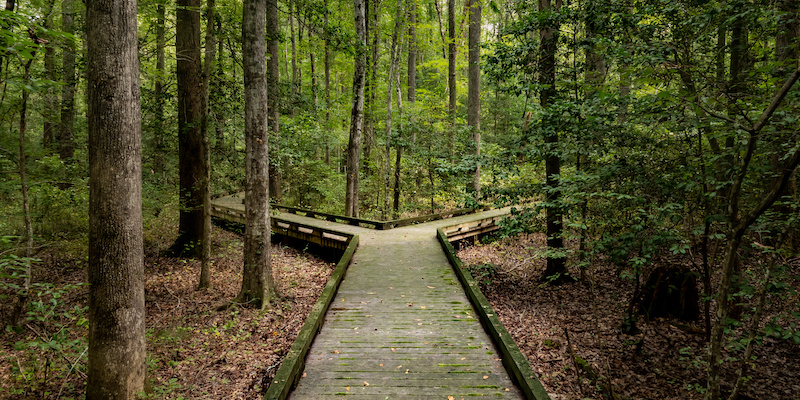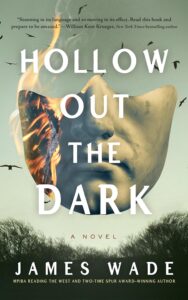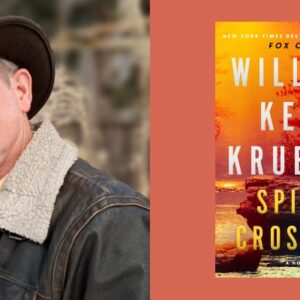I was asked recently to describe my work as a novelist in two or three words. It was, I think, supposed to be a bit of comedic question at the end of an interview. I was told other writers had said, “caffeinated and crazy” “trying hard,” and, “poor sales.” As much I like (and related to) those answers, and as much as my gut told me to say, “rural and southern,” I instead went with “choice and circumstance.”
I write a great deal about choice and circumstance and how the two elements relate. My characters seem to always find themselves at the cusp of some moral dilemma. And when it comes time for them to choose—to make their ultimate decision that will then reverberate throughout the novel—I make sure the events of their past have a say in which direction they go. I don’t do this for dramatic effect. Rather, it is the most accurate way for my characters to mirror actual human beings and how we often make our own decisions.
For example, the correlation between socio-economic status and crime rates has been studied at length, with several systemic and political factors brought to the forefront. But these statistical analyses rarely delve deep into the science of desperation. They often fail to include the actual changes in brain chemistry that can occur based on what conditions we are born into and how we are raised.
To that end, a Washington University School of Medicine study showed that the poorest children often had smaller hippocampus and amygdala structures, which directly relate to emotional regulation, memory, and response to stress. Further studies indicate that poverty can also impact the areas of the brain that pertain to language and learning.
The WUSM study didn’t just focus on economic factors. It also included measures of love and affection and how providing attention and comfort to a child can increase their ability to deal with life’s stressors later on. As much as parents (like me) may shudder at the thought, what we do now really does impact our children in the future.
All this is to say, how many criminals were given a true chance to succeed? How many successful entrepreneurs or revered academics were faced with overcoming steep odds along the way? There is anecdotal evidence of these instances, to be sure—but for the general population, how much of our lives are our own?
The concept is a simple one, and yet many folks can’t seem to wrap their heads around the thought that much of who they are is based on where they were born. Religion, politics, education level, economic opportunity, and even things like diet and fitness or smoking and drinking can be reasonably hypothesized based on the country, city, or sometimes the very neighborhood we grew up in.
However, the notion that “who we are” somehow does not fully belong to us can be an unsettling or perhaps terrifying thought. It tends to make us defensive. After all, we made our own decisions, our own choices. Didn’t we? This question contributes to an underlying theme that is present in much of my fiction—the grey area between whether or not a character’s decisions actually and fully belong to them; the impact a traumatic childhood has on our choices as adults.
A successful businessperson may want to espouse his or her own work ethic and perseverance when talking about their past. Rarely will we hear about how a serviceable transportation infrastructure aided their growth. Or an SBA loan. Or even an inheritance. It can often seem like circumstance had little or nothing to do with how things turned out.
Likewise, a criminal may be quick to tell a sad story about their childhood. About how they were never given an opportunity to succeed. It can often seem like personal accountability had little or nothing to do with how things turned out.
Of course the truth is usually somewhere in the middle—in the nuanced areas we care less and less about in our world of extremism and absolute certainties. If a person finds success, be it financial or familial or otherwise, society more often than not lifts them up as pillars of the “hard work pays off” mantra. And if someone chooses a criminal path, we direct our anger and blame at that person and that person alone. Instead, we should acknowledge the hardships, the opportunities, and the personal choices for every example.
In my own ‘origin story’ there are myriad hardships. There are also plenty of moments where I had help. There is luck—both good and bad. And there are times when I made choices that had long-ranging impact—both good and bad. I tend to think about these things when I write heroes and villains alike.
In each of my novels there is a clear antagonist (usually a few), and all these characters are written in ways that expose their backstory. The hope is that the reader will not necessarily sympathize with them, but at least begin to understand some of the driving forces that made them the way they are. I feel this is the more accurate portrayal, but also the complexity of characters can add to the richness of the reading experience. It can also help us trend toward compassion.
The way we view both success and failure in our society (without acknowledging all the surrounding factors on both sides of the ledger) further reinforces our prejudices and preconceived notions about culture and capitalism. And most importantly, it plays a large role in how we deploy our grace.
To me, grace is the single most important quality of humanity. We are, all of us, capable of it. And we are all better off for it. But where we choose to use it—who we decide deserves our grace—is all too often skewed by the unreality of “success” and “failure” narratives that don’t tell the full story.
Research on cultural and historical complicity, systemic-driven likelihoods, and early brain development ties into my own meditations on the morality and conscience of my characters (most of whom are poor and uneducated). It’s a way to create empathy and understanding not just with the characters on the page, but with many of those folks in our society who were brought unconsented into disadvantageous situations and forced to navigate an unforgiving world.
Writing rural, southern fiction and taking the time to better educate myself on the history of poverty in the south has hopefully changed my own brain chemistry enough to allow grace and compassion to be the guiding emotions in times of hardship or conflict both on and off the page.
***


















